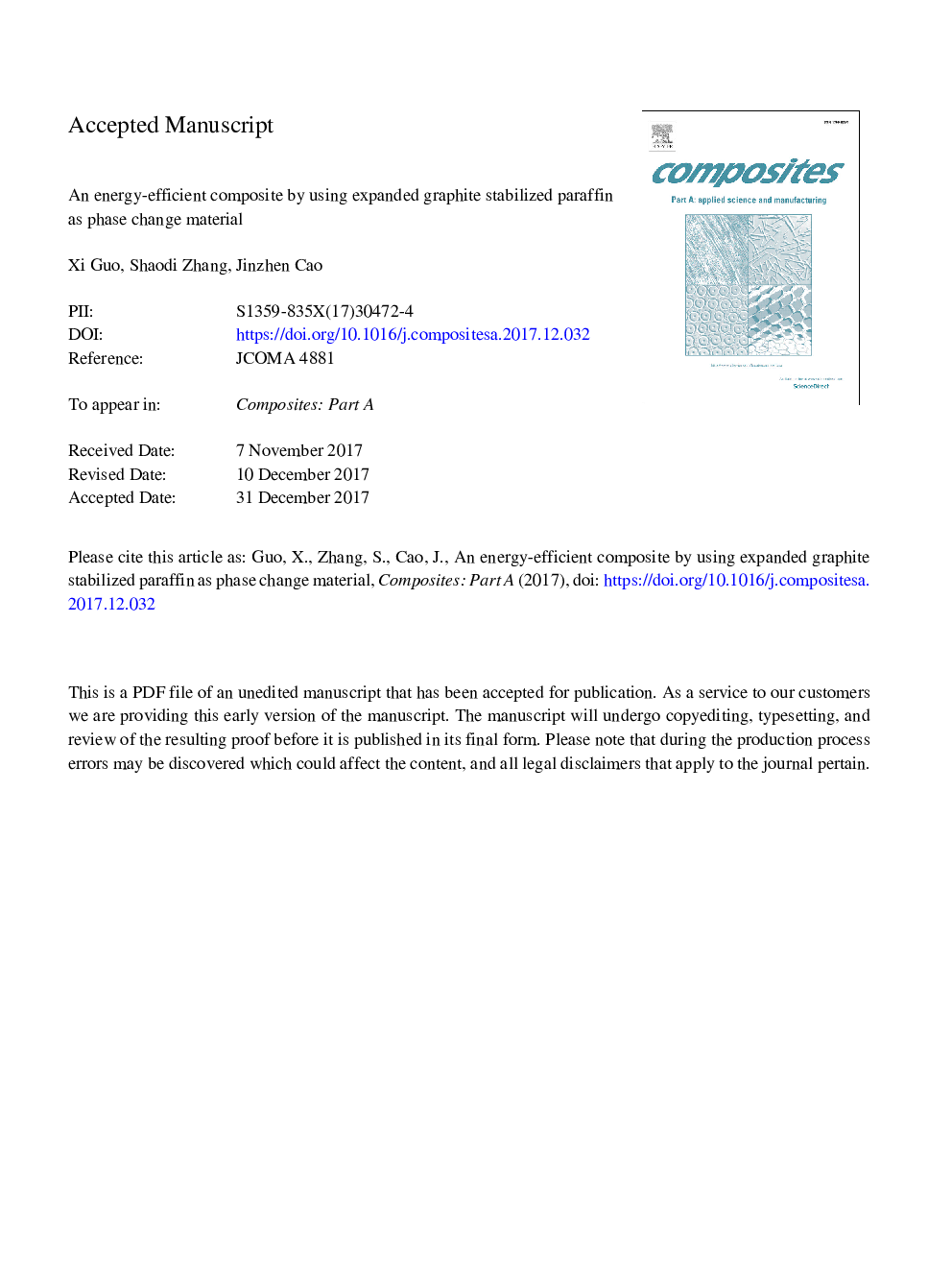| Article ID | Journal | Published Year | Pages | File Type |
|---|---|---|---|---|
| 7889615 | Composites Part A: Applied Science and Manufacturing | 2018 | 30 Pages |
Abstract
Thermal energy storage (TES) composites were prepared by employing expanded graphite (EG) stabilized paraffin as phase change material (PCM) and wood flour/high density polyethylene (WF/HDPE) as matrix. The morphology and structure of EG and form-stable phase change material (FSPCM) were investigated by scanning electron microscopy (SEM), X-ray diffractometer (XRD) and mercury intrusion porosimetry. The fabricated TES composites with different FSPCM types and contents were characterized by differential scanning calorimetry (DSC), thermogravimetric (TG), infrared thermography and laserflash thermal analysis. Physical and mechanical strength were also evaluated. The results showed that: (1) the EG had abundant pores and most of the pores were below 26â¯Î¼m, the EG stabilized paraffin material showed perfect stability without any chemical reactions; (2) thermal performance indicated that the TES composites had efficient temperature-regulated ability, but thermal durability need to be further enhanced; (3) addition of paraffin and EG destroyed the interface bonding of the TES composites and mechanical properties appeared slight decrease; (4) the satisfying thermal performance and acceptable mechanical property indicating the TES composites can be used as building material for temperature conditioning.
Keywords
Related Topics
Physical Sciences and Engineering
Materials Science
Ceramics and Composites
Authors
Xi Guo, Shaodi Zhang, Jinzhen Cao,
